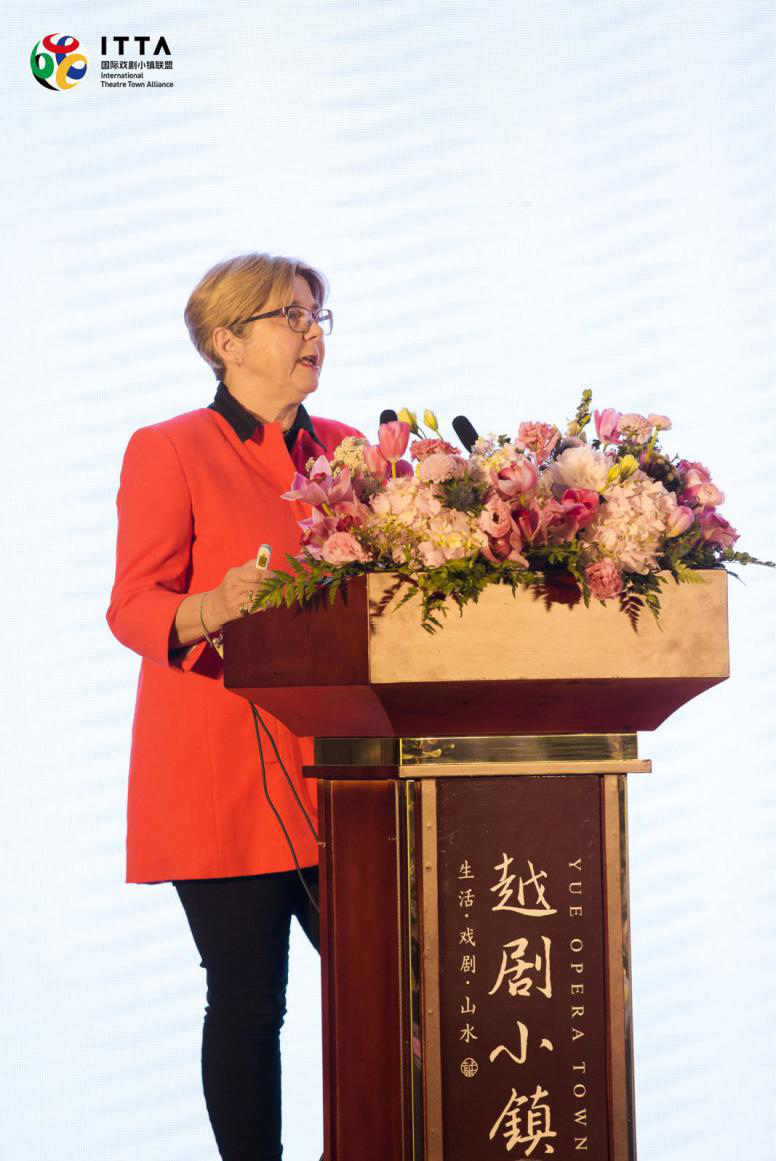ITTA Director Alert Scavennis, Professor of Drama Department, University of Copenhagen, Denmark
《In the theatre, we speak the same language》
Look at the pictures of two cups, please. One is the cup made in the reign of Kangxi in China, the other is the cup made in Copenhagen this year. The cup of China floated across the sea and eventually became the collection of King Augustus II of Poland. Afterwards, influenced by Polish collections, Denmark built a porcelain factory to produce the Blue Fluted Plain. This kind of porcelain has a history of more than 250 years. It is still the most popular one in Denmark and is recognized as a national cultural heritage. Today we think this is the core of Danish art and design, but in fact, its artistic origin goes back to China. In the 16th and 17th centuries, Danes were crazy about everything in China. Therefore, many parts of Danish culture today can also be traced back to China.
One night in 1843, Hans Christine Andersen attended the opening ceremony of the world-renowned Intervoli Park. That evening, inspired by the Chinese style architecture in Keyvolley Park, he wrote one of his most popular fairy tales, Nightingale. To date, the Pantomime theatre, a complete Chinese-style open-air theatre, has been proudly preserved in the park.
The cultural ties between Denmark and China have a long history. Until today, many Danish dramatists will go to China to seek inspiration and cooperation opportunities. For example, the Danish "Form Hotel" theatre group created a multimedia theatre "Fengshui Compass" in 1998 with the theme of diversity and interoperability. In addition, the Danish Meridian Theatre Troupe and Shanghai Drama Art Center co-authored the "Storm", which was co-authored by Italian directors and Danish and Chinese actors. It has been performed in Shanghai Drama Art Center and Copenhagen.
It is worth mentioning that Danish children's drama performance in China has also been warmly welcomed. Children are probably the best audiences in the world. They fully accept and understand theatre in an irrational way. They interact with all kinds of Theatre Arts in the world, which is difficult for us as adults. My own child, when he was still wearing wet urine, I took him to see Chinese opera. To be sure, he fully understood everything that happened on the stage.
There are also many Chinese operas coming to Denmark to exchange performances. In 2005, the Shanghai Peking Opera Troupe performed The Prince's Revenge in Krenburg. It was an outdoor performance. Behind the stage was the castle. It was very interesting. Over the years, many other troupes have come to Denmark to perform.
In the 1970s, as a young theatre student, I watched plays in Turkey, Afghanistan, Pakistan, India and so on. I realized that the farther I went, the farther I was from Europe, the better I understood the root of drama. One night, I watched a Beijing Opera performance in China. Suddenly I had a feeling that changed my life. Not all of us had such moments in our lives. Because, when I saw the form of "singing, reading, sitting and playing" merged together, suddenly everything seemed so logical that it fully explained what the theatre could do and what it should do. Later, I majored in Chinese Drama at the University of Copenhagen. My aim was to further emphasize the importance of cultural exchange. I believe that art can alleviate political tensions and bridge the gap between different political opinions. Energy-saving of art has such a huge impact, not only on the street audience, but also on the concept of art itself and the development of artistic ideas are so important.
For Shengzhou Yueju Town, I think it is necessary to invite more international art festivals to participate in it at more levels. I believe all parties can benefit from it. Today, we are in a world of constant conflict, and theatre art is like a bridge of communication, which can further promote understanding among people all over the world. Mei Lanfang's international tour has had a well-known and significant impact on Western drama, and today's cross-cultural theatrical artists are reminding us that although our faces, languages, lifestyles and ways of thinking are different, we all share the same joys, sorrows and sorrows. Therefore, I would like to thank Shengzhou Yueju Town for its platform for theatrical art, and I wish it a grand ceremony of theatrical culture.

Ms. Alert Scarvinis addressed the ITTA Forum
(These contents are from the tape recordings of the speaker.)
